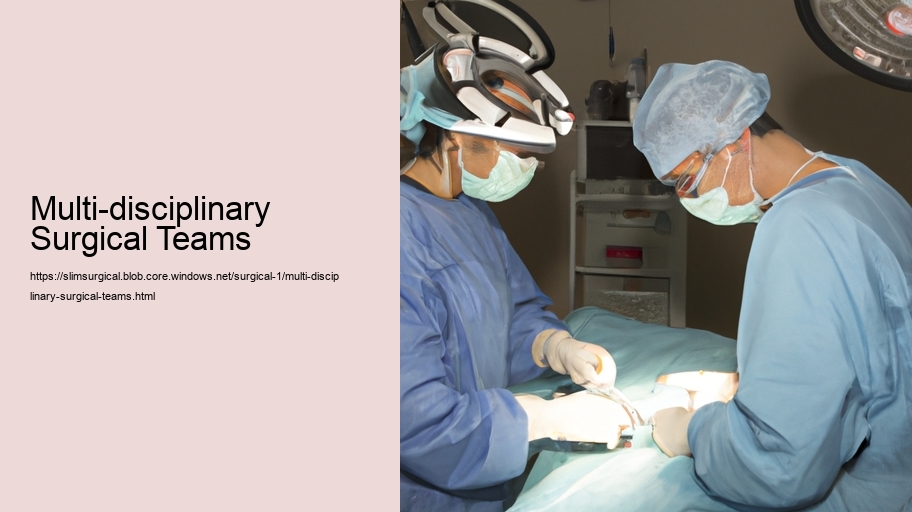Multi-disciplinary Surgical Teams: The Heart of Modern Surgery
In the ever-evolving landscape of healthcare, the concept of multi-disciplinary surgical teams has become the cornerstone of modern surgical practice. These teams represent a collaborative effort where specialists from various disciplines come together to offer comprehensive care to patients undergoing surgery. The advent of such teams has revolutionized the way surgeries are planned, executed, and followed up, ensuring quality care and improved patient outcomes.
The idea behind multi-disciplinary surgical teams is simple yet profound: to bring together a diverse group of healthcare professionals, each with their own expertise and perspective, to tackle complex medical issues. This team typically includes surgeons, anesthesiologists, nurses, surgical technologists, and sometimes, depending upon the complexity of the surgery, experts from other specialties such as cardiology, oncology, or neurology. The amalgamation of these varied skill sets allows for a holistic approach to patient care, which is especially crucial in high-stakes surgical environments.
One of the key benefits of these teams is the enhanced preoperative planning. Before a patient even enters the operating room, the team convenes to discuss every aspect of the procedure. They review the patient's medical history, imaging, and lab results, meticulously planning each step of the surgery. This preoperative strategy session helps identify potential complications and allows the team to devise strategies to mitigate them, ultimately leading to safer surgical interventions.
During the surgery itself, the synchronized efforts of the multi-disciplinary team become even more evident. Surgeons lead the procedure with precision and skill, supported by anesthesiologists who ensure the patient's stability and comfort. Nurses and surgical technologists work seamlessly to provide the necessary tools and assistance, maintaining the sterile environment crucial for a successful surgery. If unexpected issues arise, the team's combined expertise can swiftly address them, adapting the surgical plan in real-time to overcome challenges.
Postoperatively, the multi-disciplinary approach continues to shine. Recovery and rehabilitation are managed collaboratively, with each team member playing a role in the patient's journey toward healing. Regular team meetings ensure that the patient's care is coordinated, and any complications are quickly identified and managed. This ongoing communication across disciplines ensures continuity of care and reinforces the safety net around the patient as they recuperate.
Moreover, the presence of multi-disciplinary surgical teams has a profound impact on the education and training of upcoming medical professionals. Trainee doctors, nurses, and other healthcare workers get the invaluable opportunity to learn in a dynamic, collaborative environment, witnessing first-hand the benefits of teamwork in the high-pressure setting of surgery. This exposure not only enhances their clinical skills but also instills in them the importance of communication and collaboration in healthcare.
In addition, multi-disciplinary teams are at the forefront of surgical innovation. By bringing together experts from various fields, these teams become hotbeds for research and development, paving the way for new surgical techniques, technologies, and treatment protocols. This collaborative environment fosters creativity and encourages the exchange of ideas, which is essential for the progression of surgical science.
However, the success of multi-disciplinary surgical teams is not without its challenges. It requires a significant commitment to communication, respect for the diverse expertise of team members, and a shared focus on patient-centered care. Effective leadership is crucial to navigate the complexities of team dynamics and to ensure that every voice is heard and valued.
In conclusion, multi-disciplinary surgical teams represent the epitome of collaborative healthcare, bringing together diverse expertise to provide the highest standard of surgical care. Through meticulous planning, synchronized execution, and coordinated postoperative management, these teams ensure that patients receive the best possible outcomes. As healthcare continues to advance, the role of multi-disciplinary teams will undoubtedly expand, further cementing their importance in the realm of surgery and patient care.
